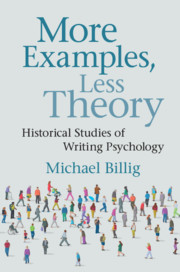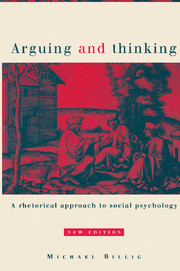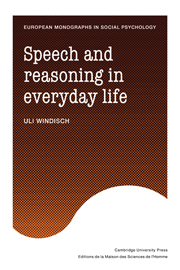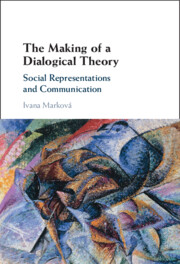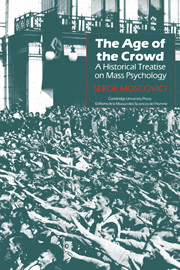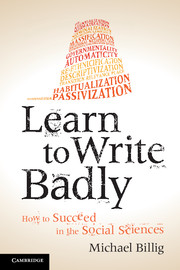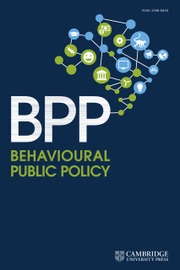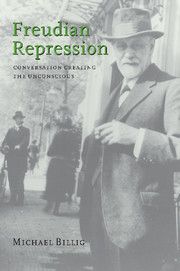More Examples, Less Theory
Historical Studies of Writing Psychology
- Author: Michael Billig, Loughborough University
- Date Published: October 2019
- availability: In stock
- format: Paperback
- isbn: 9781108736022
Paperback
Other available formats:
Hardback, eBook
Looking for an inspection copy?
This title is not currently available on inspection
-
In his new book, Michael Billig uses psychology's past to argue that nowadays, when we write about the mind, we should use more examples and less theory. He provides a series of historical studies, analysing how key psychological writers used examples. Billig offers new insights about famous analysts of the mind, such as Locke, James, Freud, Tajfel and Lewin. He also champions unfairly forgotten figures, like the Earl of Shaftesbury and the eccentric Abraham Tucker. There is a cautionary chapter on Lacan, warning what can happen when examples are ignored. Marie Jahoda is praised as the ultimate example: a psychologist from the twentieth century with a social and rhetorical imagination fit for the twenty-first. More Examples, Less Theory is an easy-to-read book that will inform and entertain academics and their students. It will particularly appeal to those who enjoy the details of examples rather than the simplifications of big theory.
Read more- Showcases the importance of using examples in psychological writing
- Includes individual studies of psychologists from the past and their use of examples in their writing, showing the connections between their ways of writing, their psychological views, and the times in which they lived
- Offers new insights about famous psychologists - like Freud, William James and Kurt Lewin - and introduces readers to unfairly forgotten figures, such as Abraham Tucker, the Earl of Shaftesbury and Peretz Bernstein
Reviews & endorsements
'In this highly readable work, Michael Billig makes a compelling argument that good examples do far more to advance and enliven theory than fancy jargon ever could. Students and seasoned writers of psychology will find inspiration in his engaging investigation into some of the most effective communicators in psychology's past.' Alexandra Rutherford, York University, Toronto
See more reviews'A common tendency of psychologists is to describe phenomena through the lens of their own pre-existing theories, thus making phenomena resemble their theories rather than vice versa. In this book, Michael Billig argues for a fundamental reversal of psychology's methodological habits, emphasising the value of 'particularising' psychological insights through the use of richly detailed examples, thus subsuming the general within the specific rather than the opposite. It is a lesson that could invigorate psychology, underscoring how the use of concrete examples helps us see and empathise and remember in ways that theoretical accounts rarely do. Through various case studies, Billig shows how we can learn as well as teach by example.' David E. Leary, University of Richmond
'The truth is in the details, not in abstract theory. In his new book, Michael Billig shows us how examples can lead to a better understanding of psychological issues. Analysing the thinking and writing of eminent psychologists, he offers the reader a rich and intriguing alternative history of psychology.' Ruud Abma, Universiteit Utrecht, the Netherlands
'This thought-provoking and important book by one of the principal scholars in contemporary psychology and social science makes a strong case for investigating human lives as they are lived, rather than searching for universally applicable theories by means of narrowly controlled experimental research.' Christine Griffin, University of Bath
'Billig insists that examples are in rhetorical tension to theory. Here there is something gently subversive about More Examples, [Less Theory]. For the book is not just about writing or the use of examples. It is also a scornful critique of that most sacred of modern academic shibboleths: doing theory and being theoretical.' Michael Marinetto, Times Higher Education
'Michael Billig's book puts many basic psychological ideas and approaches in their time and place and describes the minds, personalities, situations and histories of their protagonists. It helps the reader to see where psychology had come from, and why it is like it is. At the end Billig adds a few modest but welcome recommendations for young psychologists. I hope this book becomes a standard text for psychologists early in their studies. I for one should have been greatly helped if Michael Billig's book had been available when I started out.' John Richer, Human Ethology
'Starting with the examples of nine very different writers, he selects an exemplary work from each of them and discusses the use (or sometimes neglect) of examples within that work. Furthermore, since most of the chapters are based on material presented in Billig's previously published works, they provide examples of one thoughtful scholar's concerns and interests over a long and productive career.' Raymond E. Fancher, Journal of the History of the Behavioral Sciences
Customer reviews
Not yet reviewed
Be the first to review
Review was not posted due to profanity
×Product details
- Date Published: October 2019
- format: Paperback
- isbn: 9781108736022
- length: 292 pages
- dimensions: 228 x 152 x 16 mm
- weight: 0.43kg
- availability: In stock
Table of Contents
1. Introduction
2. Locke and Shaftesbury: foster father and foster son
3. Tucker and James: in the same stream of thought
4. Freud: writing to reveal and conceal himself
5. Lacan: an ego in pursuit of the ego
6. Lewin: is there nothing as practical as a good example?
7. Tajfel and Bernstein: the limits of theory
8. Jahoda: the ultimate example
9. Concluding remarks.
Sorry, this resource is locked
Please register or sign in to request access. If you are having problems accessing these resources please email [email protected]
Register Sign in» Proceed
You are now leaving the Cambridge University Press website. Your eBook purchase and download will be completed by our partner www.ebooks.com. Please see the permission section of the www.ebooks.com catalogue page for details of the print & copy limits on our eBooks.
Continue ×Are you sure you want to delete your account?
This cannot be undone.
Thank you for your feedback which will help us improve our service.
If you requested a response, we will make sure to get back to you shortly.
×
